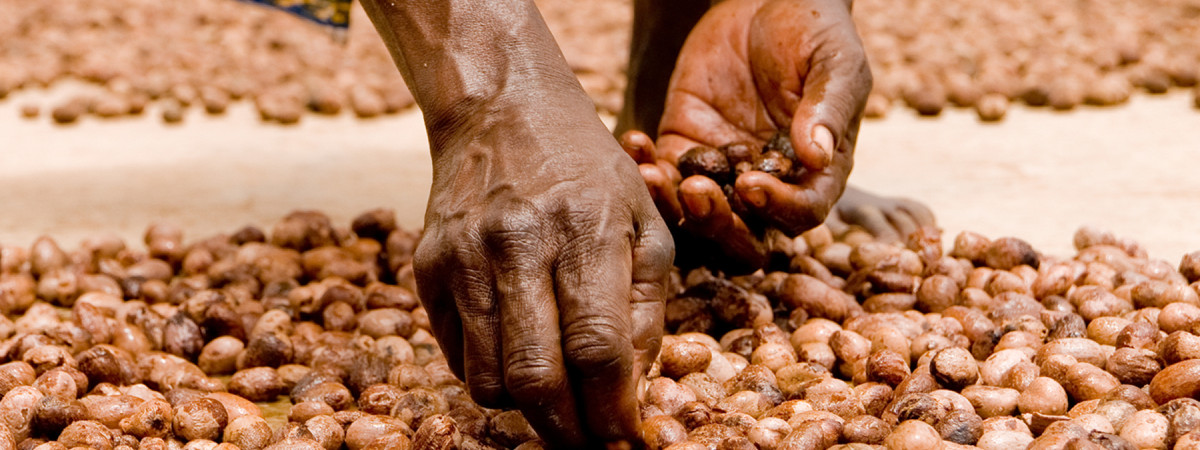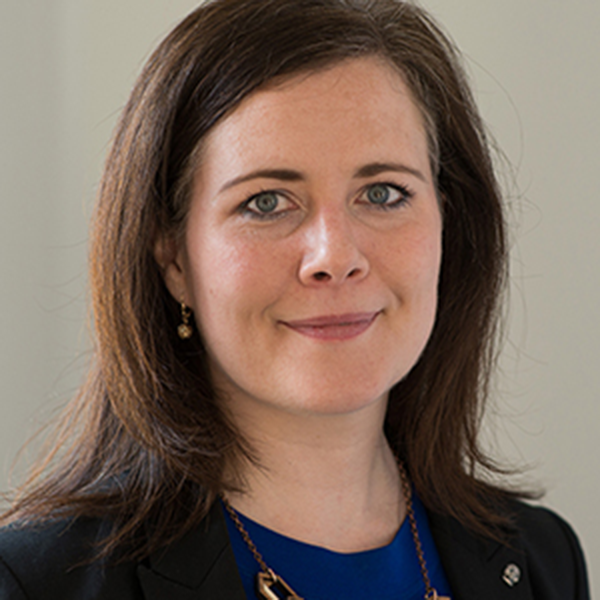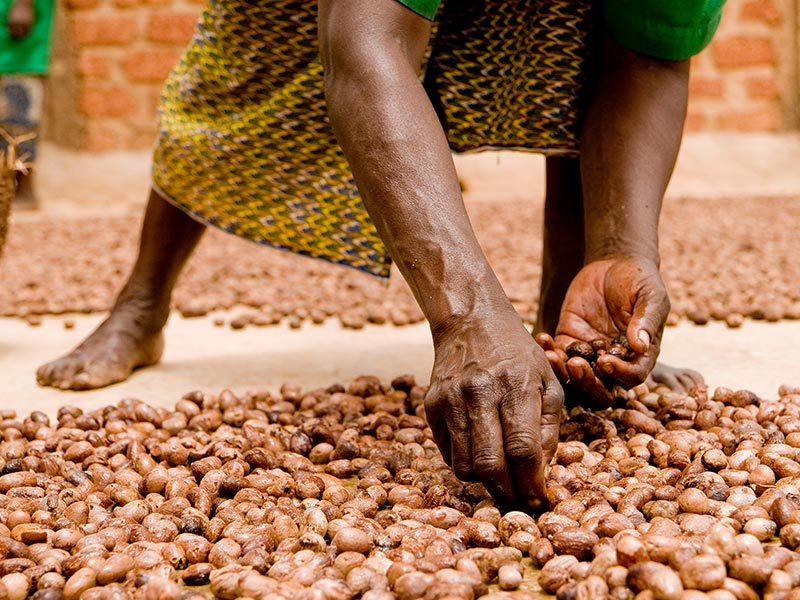
Photo by Marta Conti on iStock
Authors
-

Manager, Human Rights, BSR
-

Director, Consumer Sectors, BSR
-

Associate, Consumer Sectors, BSR
-

Associate, Transformation, BSR
Key Points
- Over 16 million women worldwide work in shea supply chains and remain dependent on a good yield for a stable income.
- To increase the financial independence of shea workers from Ghana, BSR, the Estée Lauder Companies Charitable Foundation, and other partners, developed a financial resilience training program for over 1,000 women.
- This investment can reduce supply chain volatility, mitigate disruption risks and ultimately create a lasting impact on women’s economic empowerment.
From moisturizer to chocolate, shea butter and oil—an ingredient extracted from the nut of the shea tree fruit—is used by food and cosmetic companies to create a variety of everyday items. The supply chain behind these products involves over 16 million women, who collect shea fruit, and process the nuts found in the fruit. Given women workers’ role in the value chain, their financial inclusion is crucial to ensuring the sustainability of shea—a commodity that has been under pressure given climate variability and increased clearing of shea trees for farmland.
Workers that focus on nut collection face a restricted timeframe during the summer months when ripe shea fruits allow for earning a sustainable wage. However, workers involved in processing shea nuts into shea butter may have a more stable income due to year-round work yet only garner profits from collecting during the shea season. Given that most women are uniquely shea nut collectors, and processing at scale requires several resources not readily available to everyone, the dependence upon the shea yield often leads to unstable income streams and difficulty predicting women’s disposable income.
To increase the financial independence of shea workers from Ghana, BSR, the Estée Lauder Companies Charitable Foundation, and other partners, developed a financial resilience training program for over 1,000 women working in shea in Northern Ghana.
The pilot’s scoping took a community-informed approach, gathering feedback from women shea nut collectors and processors in the identified villages. For over ten months, we delivered training in two co-operatives in the Tamale region: one in Mole Crema with mainly women shea nut collectors, and one in Janshegu with women that both collect and process. Peer educators and community volunteers were first trained on a range of financial literacy topics—including financial planning, saving, budgeting, products and services, and family financial decision-making—and then supported in delivering the training to other women in their shea cooperatives.
The results have tangible impacts on women’s livelihoods and surfaced some interesting takeaways for companies looking to improve outcomes for workers in agricultural supply chains.
How Can Business Take Action?
Financial resilience boosts women’s independence and their overall well-being and confidence.
Despite representing 43% of the global agricultural labor force, women face major barriers to realizing their full economic potential, such as disproportionate burdens of care, unequal access to resources, limited ownership and control of land, and lower remuneration.
Surveys captured before and after BSR pilot training in two co-ops have shown a positive change in gender dynamics in several households, with men taking a more active role in household chores and women more involved in daily decisions. The percentage of women believing that they should have as much access to credit and financial services (savings account, insurance, loans...) as men, increased from 54% to 98% following the pilot.
The financial resilience training dramatically increased women’s overall understanding of financial planning and boosted savings rates. Nearly all women started saving monthly after the training, versus 36% in Janshegu and 60% in Mole Crema before the training. As a result, many women took on entrepreneurial initiatives that helped them diversify their income streams—for instance, by purchasing sewing machines to mend garments or freezers to sell cold drinks.
We simultaneously observed an overall growth in confidence, an increased sense of joint decision-making power between partners, and reduced perceived limitations around savings, leading women to save more of their earnings. This training model proved to not only support women in achieving higher financial confidence but also amplified their sense of agency in their communities and their shea cooperatives.
Given women worker’s pivotal role, applying a gender lens can not only strengthen agricultural supply chains but can also enable entire communities to improve their social and economic well-being.
Collaboration between business, civil society, and local stakeholders is key to empowering workers and strengthening bonds that enable sustainable supply chains.
The pilot program in Ghanaian shea is a testament to the value of taking a collaborative approach, whereby business can amplify social inclusion and community impact by empowering female workers in their supply chain. Women who participate actively in financial decision-making, as well as engaging with resources like savings groups or financial institutions, are enabled more autonomy regarding how they manage and improve their shea business. This engagement with financial resources, and active decision-making can increase their resilience in the face of volatility in the shea market.
Tapping into the local networks of cooperatives enabled an extended reach, as beneficiaries engaged their wider communities, thereby increasing women’s economic empowerment across more of the supply chain. Engaging with local partners and suppliers at the raw material level built stronger business networks while also increasing women’s interest in continuing to work within shea.
With diversified businesses and more tools at their disposal, shea businesses can continue despite times of downturn, which has the potential to secure a more stable supply. Financial learnings can also enable investment in increased shea butter production and output with one training beneficiary saying:
“When I heard the word budgeting, I always related it to government. I never knew I could personally budget. This training has explained budgeting [and] I can [now] budget for to buy more of the shea nuts for shea butter processing."
Shea Woman Collector
The pilot program in Ghanaian shea demonstrates the value of taking a collaborative approach, whereby business can amplify social inclusion and community impact by empowering female workers in their supply chain. Working through local cooperative networks extended the reach of the impact as the women who received training shared learnings with their communities. Engaging with local partners and suppliers at the raw material level built stronger business networks while also increasing women’s interest in continuing to work within shea.
By participating actively in financial decision-making and leveraging resources like savings groups or financial institutions, women are enabled more autonomy in managing and investing in their shea business and can increase their resilience in to market volatility.
Investing in collaborative financial resilience trainings for female supply chain workers—at both the business level and industry level—can reduce supply chain volatility, mitigate disruption risks and ultimately create lasting impact on women’s economic empowerment.
Next Steps
To build on the pilot’s successes and expand impact for female financial resilience in supply chains, BSR and the Estée Lauder Companies Charitable Foundation are currently scaling this training intervention throughout 2024. In seeking to scale, we are strengthening the capacity of several local suppliers and their field officers—who interact regularly with the women workers—to make the training more accessible to actors across the shea industry.
Further to this, we are creating a radio program with the Farmers’ Voice Radio Network (FVRN) to educate its farmer and shea nut collector and processor listeners across rural areas in Ghana on financial topics. The approach of using different models aims to increase women’s financial wellbeing in the sector.
In testing the effectiveness of different models, BSR will share learnings, successes, and best practices from the project scale-up to inform efforts for investing in women working in agricultural supply chains and advancing worker and supply chain resilience.
Learn more about this initiative here, and if you would like to get involved in the scale-up, please contact us.
Topics
Let’s talk about how BSR can help you to transform your business and achieve your sustainability goals.







